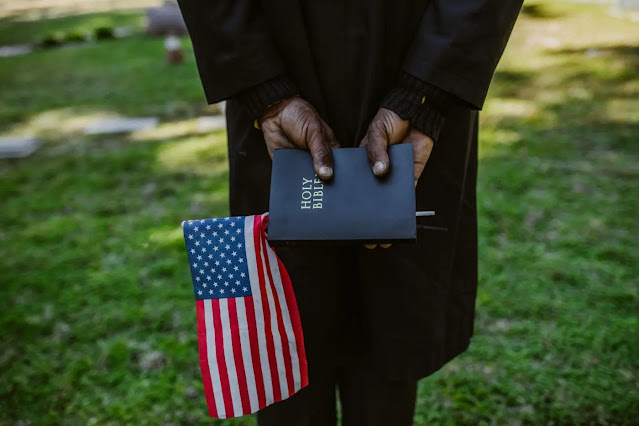The Christian and Politics
By Al Baker - Posted at Forget None Of His Benefits:
. . . render to Caesar the things that are Caesar’s; and to God the things that are God’s, Matthew 22:21.Fresh off his well known evangelistic crusade in Los Angeles in 1949, Billy Graham sought a meeting with President Harry Truman. By his own admission the meeting with Truman did not go well. Graham was brash, flashy, and over played his hand. In 1951 Graham, a lifelong registered Democrat, encouraged World War II hero General Dwight D. Eisenhower to run for President on the Republican ticket, promising to encourage southern evangelicals who were largely Democrats, to vote for Eisenhower. Graham delivered some 60% of the evangelical vote to Eisenhower, enabling him to defeat Adlai Stevenson for President.
Graham, along with Christianity Today editor Carl F.H. Henry and Dr. Harold J. Ockenga of Park Street Church, Boston, were, at the time, the major players in evangelicalism in the United States. Evangelicals were seeking to distance themselves from the Fundamentalists of the 1920’s who were perceived by many as anti-intellectual, separatistic, and narrow minded. Evangelicals believed in the full inspiration and authority of the Bible, that people must be born again by the Holy Spirit to be true Christians, that Jesus is fully God and fully man, and that the Christian’s responsibility is to take the gospel to his neighbors and the world. Historian George Marsden quipped that an evangelical was anybody who liked Billy Graham.
Perhaps in connection with the outpouring of the Holy Spirit which began around 1966 and lasted until around 1976 which swept across the United States, the influence of evangelicals as a voting block became very significant. Jimmy Carter, a Democrat, referred to himself as “born again” and this helped him garner the support of a majority of evangelicals to win the White House in 1976. Of course evangelicals quickly became disenchanted with Carter and the inconsistencies they saw in his policies. Evangelicals have clearly been a major voting block in American politics for well over fifty years though their influence is surely shrinking. In fact the so called New Apostolic Reformation Church (a term coined by C. Peter Wagner), a Neo-Pentecostal group which believes in extra-biblical revelation and denies the Trinity (they tend to be modalists, which means they deny the Biblical concept of one God, in three persons, equal in nature) has made entre into the evangelical voting block. This has been seen in the support of Paula White, Bill Johnson of Bethel Church, and Mike Bickle, founder of the International House of Prayer and other preachers who support conservative, Republican candidates.



